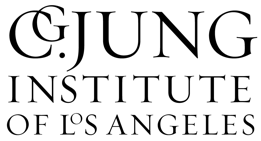
In-Person Only: Embodied Resourcing Through Image Making
Book Talk and Signing with Christi Taylor-Jones, author of “Touched by Suicide”
POSTPONED: First North American Conference on Infant, Child and Adolescent Jungian Analysis
In-Person Only: Embodied Resourcing Through Image Making
Book Talk and Signing with Christi Taylor-Jones, author of “Touched by Suicide”
POSTPONED: First North American Conference on Infant, Child and Adolescent Jungian Analysis
« All Events « All Public Programs « All Training Programs
- This event has passed.
Zoom Only:
Jung and Aion: Meeting the Roots in Liber Novus and the Black Book Journals
March 11, 2022 @ 7:30 pm - 9:30 pm
One event on March 12, 2022 at 6:00 pm
One event on March 13, 2022 at 2:00 pm
Event Navigation

Three events presented by Lance Owens, M.D.
Friday, March 11, 7:30 – 9:30 pm (Pacific Time)
Saturday, March 12, 6:00 – 8:00 pm (Pacific Time)
Sunday, March 13, 2:00 – 4:00 pm (Pacific Time)
In 1944, Jung suffered an illness that took him to the edge of death. During a period of several weeks in February 1944, he experienced near-death visions, events so intense that they changed his understanding of his life journey. These transformative visions returned him to the visionary events that were the foundations of his life work. His book Aion: Researches into the Phenomenology of the Self, written between about 1946 and 1950, was a major meditation on the seminal source of his life work, the events recorded in Liber Novus and the journals.
In this seminar, we will examine the roots of Aion and Jung’s vision of the Christian age at its terminus. We will turn from the text of Aion back to Liber Novus and the journals. An understanding of Aion and its sources is a key to understanding Jung’s life work.
Session 1: Why did Jung write Aion?
Friday, March 11, 7:30-9:30 pm (Pacific Time)
In this seminar, we will explore the near-death visions that Jung experienced in 1944 and examine how these visions returned him to the visionary experiences he had recorded in his Black Book Journals, written some thirty years earlier, the period during which he transcribed The Red Book: Liber Novus. We will focus on the development of his theoretical ideas about the unconscious such as anima, animus, and the Self, and the evolution of Christianity, including its terminus.
Learning Objectives:
- Describe what is meant by the term the Self and give an example of how Jung’s thinking about the Self evolved over the course of his lifetime.
- Describe what is meant by the terms anima and animus and give an example of how these aspects of the psyche can be manifested clinically.
Session 2: The Vision of a New Age of Human Consciousness
Saturday, March 12, 6:00-8:00 pm (Pacific Time)
The vision of a new age of human consciousness was the central focus of Jung’s Red Book: Liber Novus, and subsequently of Jung’s writing three decades later in Aion. It was, as he stated on the first page of Liber Novus, the “way of what is to come.” How was Jung’s view of Western culture and the history of Christianity revealed in Aion? We will consider how the first sections of Aion, in which he discussed anima, animus, and the Self, reflect back upon the experiences in Liber Novus and his Black Book Journals.
Learning Objectives:
- Describe what Jung meant by a new age of consciousness.
- Describe how this conception of the new age of consciousness framed his understanding of psychological processes.
Session 3: Jung in Context
Sunday, March 13, 2:00 – 4:00 pm (Pacific Time)
According to Jung, Gnostic writings about the evolution of consciousness documented an understanding of the concept of the Self as early as two thousand years ago. We will examine Jung’s evidence for his views using Gnostic materials from the first Christian centuries as described in Aion, and evaluate Jung’s understanding of his vision of a new age of human consciousness in light of current cultural contexts and his evolving ideas as to the clinical application of his work.
Learning Objectives:
- Describe what is meant by the Self in Jungian psychology.
- Describe how the concept of the Self from a Gnostic perspective.
- Compare the Gnostic perspective of the Self to the current understanding of the Self in clinical practice.
Lance S. Owens, M.D., is a physician and historian in clinical practice. He received his doctorate from Columbia University and completed postgraduate training at UCLA. Over the last three decades, he has lectured and written extensively about Jungian history, including university seminars, and lectures at the C. G. Jung Institute in Zurich. Since publication of Jung’s Red Book: Liber Novus he has published several major essays on Jung and the evolution of his life work. Many of his publications are available online at https://utah.academia.edu/LanceSOwens
In preparation for these lectures, you might want to read Lance Owen’s article Jung and Aion.
Continuing Education:
Psychologists/LCSWs/MFTs/LPCCs: The C.G. Jung Institute of Los Angeles is approved by the American Psychological Association to sponsor continuing education for psychologists. The C.G. Jung Institute of Los Angeles maintains responsibility for this program and its content.
Nurses: The C.G. Jung Institute of Los Angeles is an accredited provider approved by the California Board of Registered Nursing. Registered Nurses may claim only the actual number of hours spent in the educational activity for credit.
